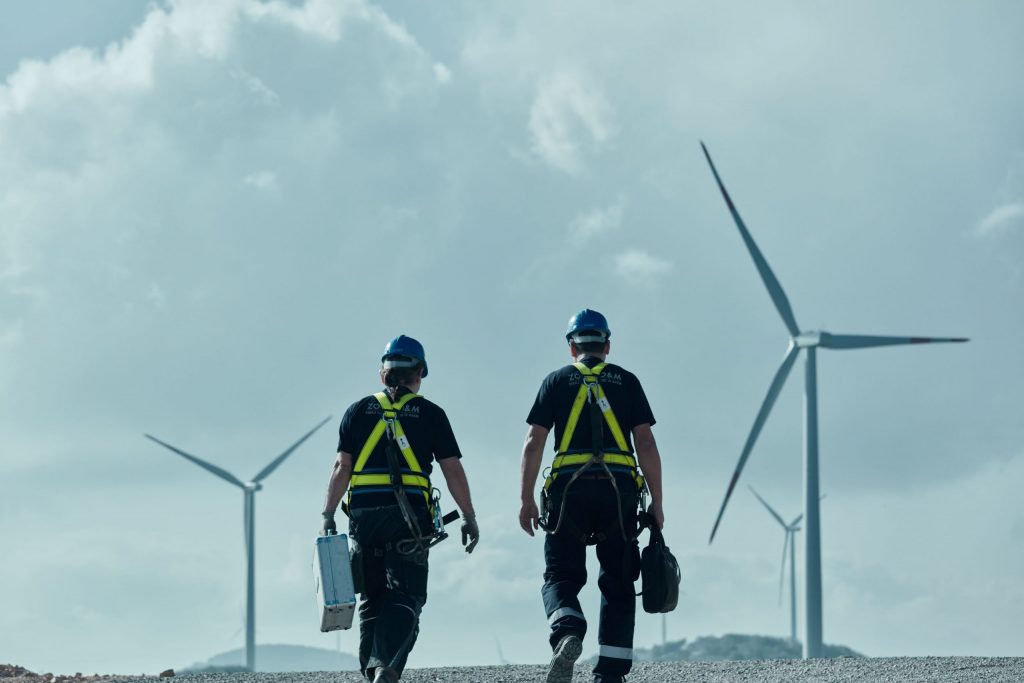Turkey should benefit more from local sources in meeting its energy needs, as well as securing stable supplies and increasing market predictability, Deputy Energy and Natural Resources Minister Alparslan Bayraktar said.
Bayraktar was speaking during a recent interview with Nikkei Asia.
The statements came as energy prices soar worldwide due to major oil and natural gas exporter Russia invading its neighbor Ukraine and the subsequent Western sanctions.
Turkey is majorly dependent on imports to meet its energy needs, with Russia being a large source for years.
The country’s share in Turkey’s energy imports, despite posting a long decline, again rose in 2021, reversing its course.
Russia’s share of the country’s natural gas imports was only 33% in 2019 and 2020, declining from more than 60% in 2005.
This was mainly because Ankara has diversified its sources, through a new natural gas pipeline from Azerbaijan – the Trans Anatolian Natural Gas Pipeline (TANAP), as well as weighing more on liquefied natural gas (LNG) supplies and investing in gas storage, regasification units and renewable energy.
Last year, however, when spot LNG prices rose, Russia’s natural gas exports to Turkey rebounded to around 40%.
According to Bayraktar, a 20% to 25% share of imports from “one single country is more reasonable.”
The deputy minister said that nuclear power – which is among Turkey’s 2053 targets for achieving carbon neutrality – is another alternative to reduce the reliance on a single source.
Bayraktar said that plans have already been announced to build 12 large nuclear reactors at three sites, but the country needs more since these “will not be enough if we consider the 2050-70s.”
Last week, Marisa Lago, the U.S. Commerce Department’s undersecretary for international trade, hosted the Eurasia Small Modular Reactor Forum in Ankara.
Apart from Turkey, representatives from Turkmenistan, Uzbekistan and Kazakhstan also participated in the forum.
Bayraktar, who took part in the event, told Nikkei that Lago and the new U.S. Ambassador to Turkey Jeffry Flake visited him at the ministry earlier to discuss the potential introduction of small modular reactor (SMR) technology to Turkey.
He said that Turkey is negotiating with China to build four large-scale nuclear reactors in the Thrace region of northwestern Turkey.
COVID-19 restrictions have slowed negotiations, but talks continue online, he said.
“There is some significant progress toward an intergovernmental agreement between Turkey and China,” Bayraktar said.
The first of four reactors at the country’s first nuclear plant, Akkuyu Nuclear Power Plant (NPP), which is being built on the Mediterranean coast, will come online next year.
Russia’s state nuclear energy firm Rosatom is building the plant. The two countries signed a cooperation agreement in 2010 and began the construction in 2018.
Once completed, the plant is expected to produce 35 billion kilowatt-hours (kWh) of electricity annually and will meet about 10% of domestic electricity needs.
The plant, which will have an estimated service life of 60 years with an extension of another 20 years, will produce carbon-free energy around the clock.
Bayraktar further commented on Turkey becoming a regional gas hub, stepping up natural gas research in the Black Sea and Eastern Mediterranean, as well as expanding capacity for renewables.
Geographically attractive, Turkey is coming to the fore as an energy hub once again in Europe’s search for alternatives to Russian gas as it connects gas-rich countries such as Azerbaijan, Turkmenistan, Israel, Iran and Iraq to Europe.
Bayraktar however added that “there is no immediate solution” to finding a substitute for Russian energy.
Even if such fresh supplies via pipelines are secured in the long term, he said, they will constitute only about one-fourth of the 155 billion cubic meters (bcm) of Russian natural gas supplied annually to Europe.
Turkey already receives gas and oil through pipelines from Russia, Azerbaijan, Iran and Iraq and also delivers supplies to Europe. Bayraktar said the Southern Gas Corridor (SCG), a route that brings supplies from the Caspian Sea to Europe and has been operational since 2020, would have large excess capacity if more compressors are added to the system.
With just a 550-kilometer (342-mile) pipeline to Turkey’s southern shores, Israel’s offshore gas can be swapped with Europe once it reaches Turkish soil, he added.
Turkey’s energy and foreign ministers are scheduled to visit Israel in May.
sailysabah.com
